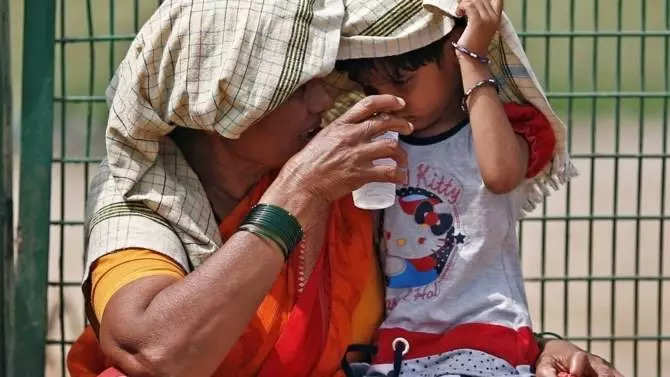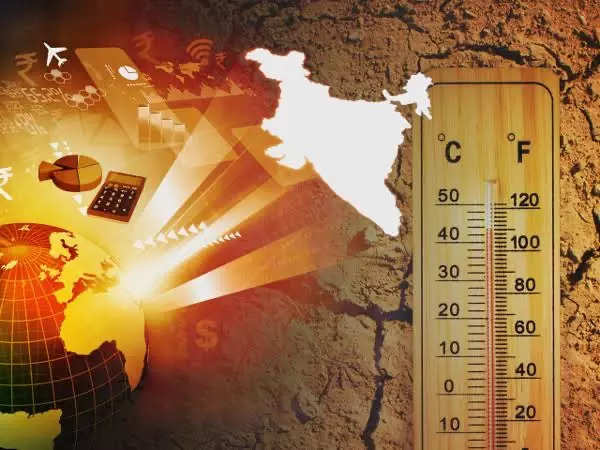Recently someone who is into mango farming told me that this year the supply of the fruit is limited. He hails from the Konkan region of Maharashtra which is famous for the Alphonso variety of mangoes. He said he did not see the usual size of mango flowers during winter. The flowers require a colder winter to bloom and turn into buds, which ultimately grow into mangoes. The reason, he said, was heavy construction in and around the Konkan region because of which the layers of dust stunted the mango flowers. Also due to climate change the winters were not cold enough for the flowers to blossom. This is not limited to mangoes but many other crops including coffee. Climate change influences, including insufficient rainfall, temperature fluctuations, drought, and heavy flooding, could reduce the availability of suitable land for growing coffee by 50%, according to a study. Experts say that people may be even forced to drink synthetic coffee as the land available for cultivation shrinks.
Heatwave and climate change impact
Except for a few cities from the east like Kolkata where it’s raining, several other parts of the country are witnessing severe heatwaves. The average temperature is 40 degrees in many parts and people are avoiding going out at noon. Fortunately, this is not a crop a season so the impact of the heatwaves is less on the farming but there is an impact on the seasonal and perennial crops and animals.
To make matters worse, the severity of heatwaves is increasing every year and a climate crisis is staring at us. Regulators and financial institutions have been highlighting this.
There is a worry the extreme summer with an average temperature of 40 degrees this year will hit not only the farmers but the overall economy as well.
Earlier the Reserve Bank of India’s (RBI) Department of Economic and Policy Research had said that climate change stemming from rising temperatures and transforming patterns of monsoon rainfall in India could cost the Indian economy 2.8% of its GDP and depress the living standards of nearly half of its population by 2050.
The Bank of Baroda’s economic research team has said that in India heatwave conditions are impacting food production. A normal monsoon (as predicted by the Indian Meteorological Department) may provide relief to inflation in the near term.
Barclays has said that heatwave conditions impacting electricity demand and vegetable inflation remain key causes of concern.
Retail vegetable prices are again simmering, this time driven by potatoes, ginger and winter vegetables such as cabbage and peas. The magnitude of the price increase is not yet as sharp as those seen in July last year, though with heatwave-like conditions the price trend is being watched.
In a detailed note, the chief economist of Infomerics Ratings Manoranjan Sharma has said that rising heatwave conditions have caused extensive concerns globally because of its multi-layered sectoral impact on the macroeconomy.
The working group of the Intergovernmental Panel on Climate Change (IPCC) has found a 30 times greater probability of such events occurring than they would have without climate change.
The Indian economy is adversely affected by damaged human and animal health, reduced crop yields, droughts, increased pest and disease pressure and soil degradation. Heatwaves also lower the production of animal fodder and reduce animal productivity, raise milk prices and hurt power grids. Similarly, poultry and fishery are also affected by deteriorating air quality and rising climate change. Such aspects necessitate effective measures to combat heatwaves and their consequences.
A recent report by Climate Transparency showed that India suffered an income loss of 5.4% of GDP in 2021, the highest among the G20 nations that year, primarily because of global warming stemming from human activities, such as burning fossil fuels, deforestation, and industrial activities.
India has a large number of migrant workers, people below the poverty line who will be affected by heatwaves.
Global Problem
Heatwaves and climate change is a global problem. There are various reports, which have highlighted the impact of climate change. This week a white paper released by the World Economic Forum predicted that climate change will cut the average income by 20 and will cost us a fifth of our earnings over the next 26 years.
The Potsdam Institute for Climate Impact Research has said that climate change will cause massive economic damage within the next 25 years in almost all countries. And it will inflict losses of $38 trillion by 2049 since extreme weather will destroy the agriculture yields.
The current situation
The demand in for air coolers, air conditioners and refrigerators is very high. In several places, air coolers are out of stock and people are even taking loans to buy them. In towns and cities, municipal bodies have issued guidelines asking people to stay indoors during noon, when the intensity of the heatwave is very harsh.
Amid the sweltering heat, the weather department has forecast pre-monsoon showers in Mumbai, adjoining areas and also in other parts of the country. That would be a welcome respite.
(Editor’s Note is a column written by Amol Dethe, Editor, ET CFO. Click here to read more of his articles exploring several buzzing topics)






